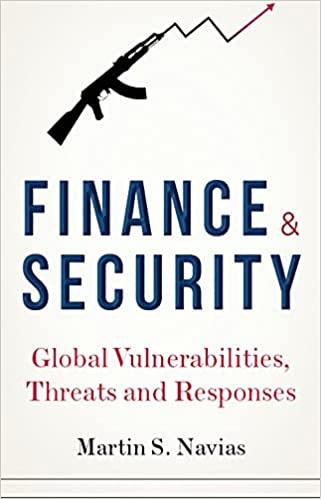Question
Which of the following is wrong? Select one: a. The par value of a bond is always its market value. b. The par value multiplied
Which of the following is wrong?
Select one:
a. The par value of a bond is always its market value.
b. The par value multiplied by the coupon rate equals the interest paid to investors annually.
c. The par value of a bond will be paid to the bondholder at maturity.
d. The par value of a bond is its face value.
Question 92
Not yet answered
Marked out of 1.0
Flag question
Question text
What is the primary problem with dying intestate?
Select one:
a. It only matters if there is no surviving spouse.
b. Medical personnel will be responsible for decisions about your care when they do not know you.
c. Your estate will flow to the government.
d. An administrator will be appointed to distribute the estate according to law.
Question 93
Not yet answered
Marked out of 1.0
Flag question
Question text
Rebeccah is 65 and has just retired. She can select a pension of $1745 payable at the end of each month guaranteed for the rest of her life, but not indexed for inflation, or take a lump sum of $312,000. Assume she can invest the lump sum at 6% per year, compounded monthly, and draw the same income as the pension. If she lives to be 95 years old, which is the better choice?
Select one:
a. The pension since she might live past 95 years.
b. The lump sum since it is equivalent to a pension of $1871 per month.
c. The pension since it is equivalent to a lump sum of $320,000.
d. The lump sum since it is safer.
Question 94
Answer saved
Marked out of 1.0
Flag question
Question text
Which of the following is not a cash outflow?
Select one:
a. Car payment
b. Telephone bill
c. Salary
d. Rent
Question 95
Not yet answered
Marked out of 1.0
Flag question
Question text
Which of the following applies to the CPP?
Select one:
a. You will collect more total CPP if you claim it at age 60.
b. It is a tax free benefit.
c. You can apply between the ages of 60 and 70.
d. All Canadians are entitled to it.
Step by Step Solution
There are 3 Steps involved in it
Step: 1

Get Instant Access to Expert-Tailored Solutions
See step-by-step solutions with expert insights and AI powered tools for academic success
Step: 2

Step: 3

Ace Your Homework with AI
Get the answers you need in no time with our AI-driven, step-by-step assistance
Get Started


